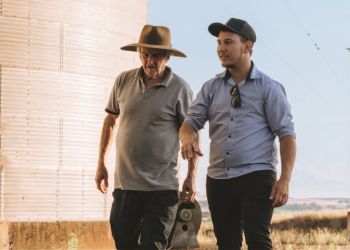The U.S. Environmental Protection Agency (EPA) announces the Contaminated Sites, Natural Disasters, Changing Environmental Conditions, and Vulnerable Communities: Research to Build Resilience Request for Application (RFA).
Open Date: Monday, July 29, 2019
Close Date: Tuesday, Sept. 17, 2019
Background:In recent years, more frequent natural disasters and changing environmental conditions have emerged potentially affecting many vulnerable human population groups. Of those groups, children from birth to the age of five years are of concern because of their unique biological, social, and behavioral vulnerabilities, susceptibilities, and potential life-long health impacts. This concern may be multiplied when they are born and grow up in a community near a contaminated or containment site since natural disasters or changing environmental conditions may result in transport and spread of contaminants to the immediate surrounding media (such as air, water, soil, dust, surfaces) where children may be exposed. The other vulnerable group of concern is the elderly, especially since they may not be as agile or resilient to natural disasters or changing environmental conditions as other population groups. Research is urgently needed to identify and characterize such vulnerable sites or facilities.
EPA, as part of its Science to Achieve Results (STAR) program, is seeking research needed to identify and assess the impacts of contaminants in conjunction with environmental and other non-chemical stressors (e.g., extreme events, geological, regional, seasonal, socioeconomic, cultural, behavioral) that may govern the particular vulnerabilities in children and elderly, so communities can be equipped with science-based solutions for reducing the vulnerabilities and building community-level resilience. The scientific community should propose transdisciplinary research with an approach that (1) determines how may certain natural disasters or changing environmental conditions cause specific chemical contaminants to migrate from certain contaminated or containment sites to nearby communities and pose elevated exposure risks to vulnerable groups, especially the elderly and/or children under the age of five years? (2) What are the major contributing factors or effect modifiers, in addition to the contaminants, and natural disasters or changing environmental conditions, that may exacerbate the impacts to these vulnerable groups in impacted communities? and (3) How can scientific research results specifically help communities build better resilience against the problems and issues identified above?
The research activities for funding under this announcement are intended is to promote and build healthy and resilient communities to protect vulnerable groups such as children and the elderly, from the impacts of natural disasters or changing environmental conditions.
This RFA is supported by EPA’s Sustainable and Healthy Communities (SHC) Program, which promotes and builds healthy and resilient communities.
The STAR Program’s goal is to stimulate and support scientific and engineering research that advances EPA’s mission to protect human health and the environment. It is a competitive, peer-reviewed, extramural research program that provides access to the nation’s best scientists and engineers in academic and other nonprofit research institutions. STAR funds research on the environmental and public health effects of air quality, environmental changes, water quality and quantity, hazardous waste, toxic substances, and pesticides.









